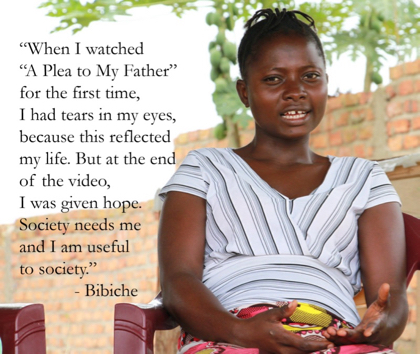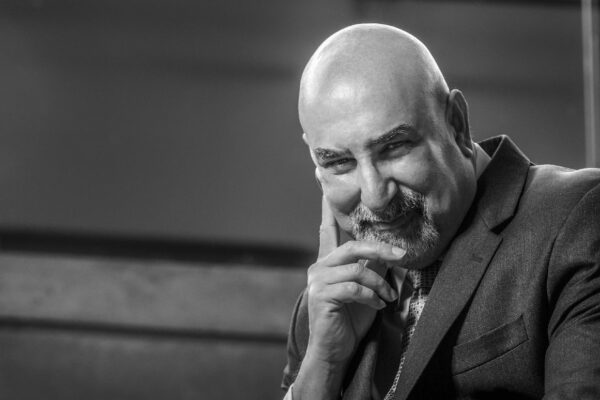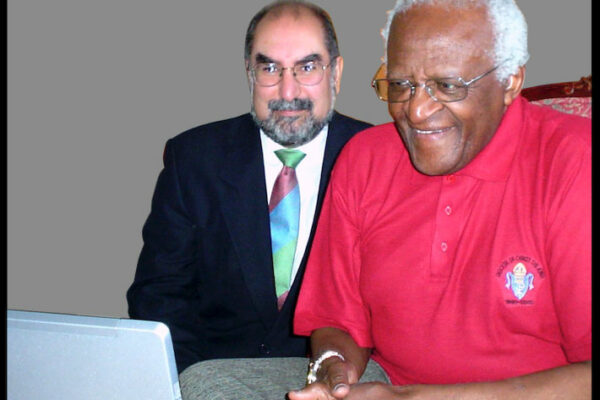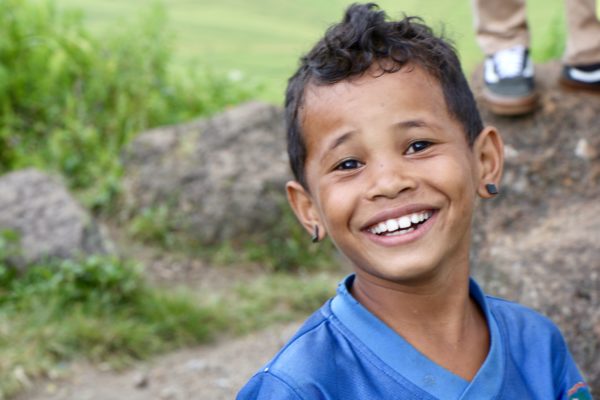A DISPLAY OF HOPE FOR EAST CONGO VICTIMS OF SEXUAL VIOLENCE
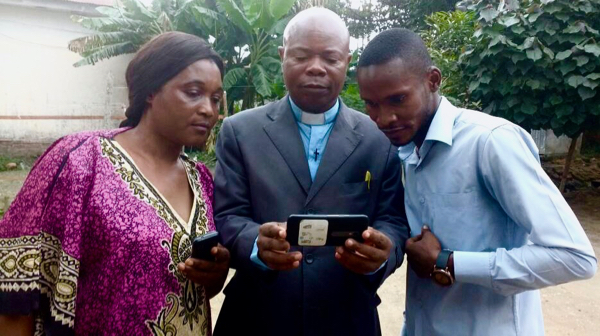
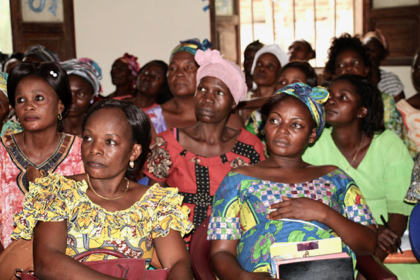
Congolese women and the church are the starting points of support for rape victims in the DRC. Courtesy of Neelley Hicks.
By Judith Osongo Yanga: Director of Communication, East Congo United Methodist Church
The eastern area of the Democratic Republic of the Congo where one finds our Episcopal region is well-known for numerous troubles from militants or rebels, who often rape women and children. Being innocent and vulnerable these victims are abandoned by their own family, in particular by their husbands. There are many reasons for this, and all of them contribute to destroying families.
They find themselves doubly victimized because of the stigmatization they sustain after the violence. Having been abandoned by their parents, families or husbands, their primary refuge is in the church. We have found group prayer meetings to be very timely and have drawn closer to these women and children in order to listen to them more deeply. This is how we document cases of abandonment. Society has completely forgotten that they have a right to life. Faced with this situation, the church must play a role in helping form a new life for them by making them useful in society.
The element that jumps out the most in exchange with these victims is the stigmatization they feel from their husbands and parents. Together with support from Harper Hill Global and Chocolate Moose Media, we have succeeded in creating a video story that reveals the reality of this situation. It is an animated film called A Plea To My Father, a story of a young boy who pleads with his father to not abandon his mother and older sister because they were raped by militants. (It is voiced in nine languages and can reach about 90 percent of Congo’s population.)
Within the church, this video has been shown to local female leaders and victims through television broadcasts (on National Congolese Television – RTNC), on social media and via telephones. This has elicited in them many reactions.
“This film is an opening for our female church leaders to step up and take responsibility for these victims because they live together among us. Communication is an important tool for us today because we have a new vision about these victims of sexual violence. The film shows us a remarkable account of a victim of stigmatization, because her refuge is the church. (Before the official) broadcasting of this film on national television in eastern Congo, specifically in Kisangani, we were overjoyed to see how the local authorities greeted our initiative,” says Furaha Tshoso, President of the Women of the Annual Conference of Eastern Congo.
It has also given strength to some victims to come forward and talk about their experiences. (See Bibiche comment and photo below).
“It improves the case against stigmatization in regard to these victims of rape,” says Max-Cesar Lokate, director of RTNC, adding that A Plea To My Father is being broadcast six times per day to better raise awareness and fight against stigmatization. Lokate reports that the animation has now reached at least 250,000 households in the Kisangani viewing area alone.
Church leaders are using the video and other efforts by Harper Hill Global to mend the cracks in local communities. This means not only creating hope and optimism among victims but also by starting discussions among all members of communities. One result is the construction of the Mama Lynn Center in Kindu by Congo Women Arise – a partnership of United Methodist organizations. It is a recovery center for the victims of violence and a starting point for their reinsertion into society.
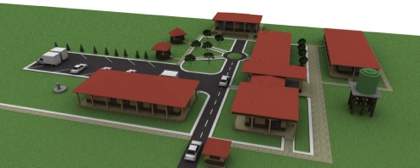
A plan of the Mama Lynn Center currently under construction in Kindu in East Congo. Courtesy of Harper Hill Global.
The project is being driven in East Congo by the United Methodist Church and its Bishop, Gabriel Unda, who has a vision for a better future for all the people of God.
“(A Plea To My Father) supports our vision of East Congo Episcopal Area, which is ‘Rise Up and Build.’ This video is an important tool of communication which helps us reach, at the end, a deep community base and puts a face to the victims of stigmatization in our Episcopal region, which has been the sight (sic) of numerous wars,” says Bishop Yemba.
All these projects hope to create a solid catalyst for activism. “The fight against stigmatization must be the responsibility of all,” declared the coordinator of the American Bar Association, during a meeting that reunited all the human rights’ activists for the protection of men, women and child victims of sexual violence.
Reverend Martin Kasongo, pastor of the local Salama church, adds that “this film is a plus in our pastoral ministry, a new strategy of evangelization for the victims of stigmatization to speak to us.”
____________________________________________________________________________
